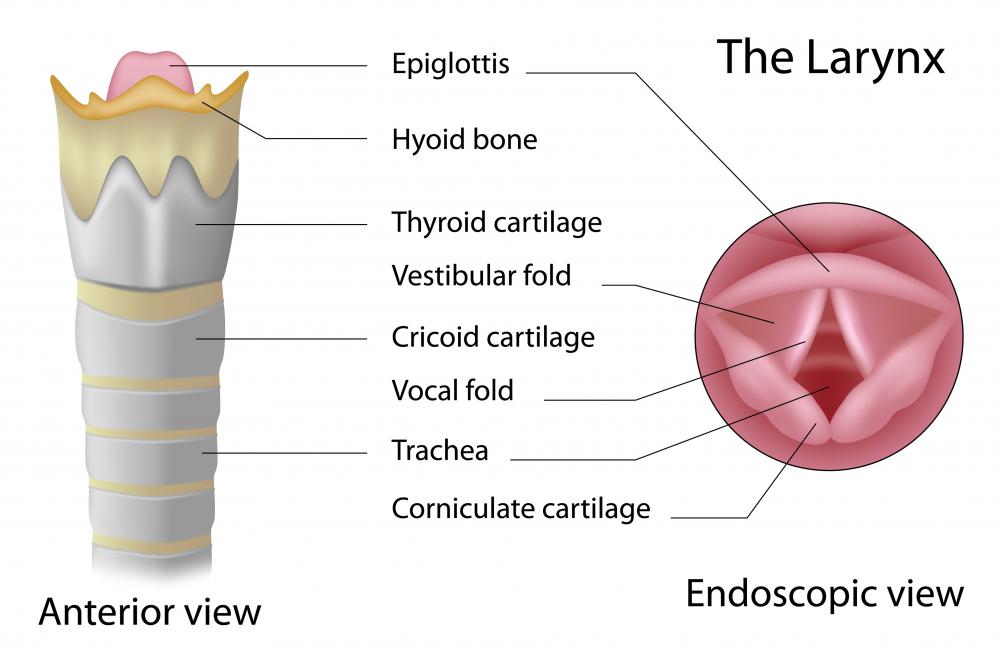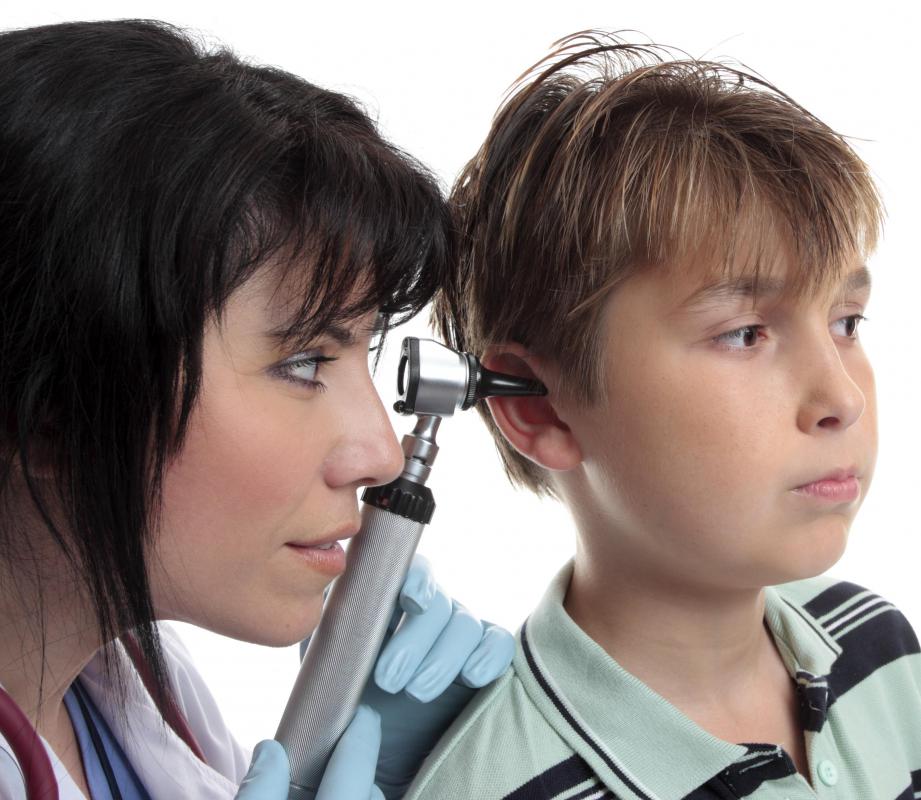At PracticalAdultInsights, we're committed to delivering accurate, trustworthy information. Our expert-authored content is rigorously fact-checked and sourced from credible authorities. Discover how we uphold the highest standards in providing you with reliable knowledge.
What does an Otolaryngologist do?
An otolaryngologist is a medical doctor who specializes in diseases and disorders that effect the ear, nose, and throat. More commonly known as an ear, nose and throat specialist, or ENT, an otolaryngologist receives specialized medical training pertaining to the head and neck areas. Their medical specialty is otolaryngology.
Specializing in diagnosing and managing medical conditions effecting the sinuses, larynx, pharynx, ears, and other head and neck structures, an otolaryngologist sees patients for a broad range of conditions. These include hearing loss and chronic ear infections to sinusitis and they may even perform reconstructive surgery of the face in order to treat birth deformities. An otolaryngologist may also treat benign and malignant tumors of the face and neck, perform cochlear implants, treat sleep disorders, and provide treatment for a wide range of other conditions.

The training required to become an otolaryngologist begins with medical school and post-graduate training and is coupled with internships. It may take upwards of 10 to 15 years before a physician is ready to independently practice. In the United States, many otolaryngologists seek certification by the American Board of Otolaryngology, which requires college, medical school, and a minimum of five years of specialized training as well as passing a board exam.

Within this medical specialty, an otolaryngologist may further specialize in one of several areas of otolaryngology including pediatric ENT, otology and neurology, head and neck, and facial plastic surgery. An otolaryngologist is dual-trained in both medicine and surgery and may be even further trained in surgical procedures depending on their sub-specialty.

According to the American Academy of Otolaryngology, this specialized area of medicine is the oldest specialty in the United States. Its roots as a medical specialty can be traced back to 1896. Other significant dates in otolaryngology history include the first documented tracheotomy in 1546 and the first of any type hearing aid was produced in 1898.

A licensed otolaryngologist may practice in a private or group practice as well as in a hospital setting. They treat both children and adults and often receive patients on referral from primary care physicians or pediatricians. Otolaryngologists may work with other specialists, such as respiratory or audiology specialists to manage certain conditions. Some people may visit an ENT on a regular basis and others may see an otolaryngologist only once or twice in a lifetime.
Those interested in entering this medical specialty or patients wishing to find board certified otolaryngologists can visit the American Academy of Otolaryngology – Head and Neck Surgery’s website for more information.
AS FEATURED ON:
AS FEATURED ON:















Discussion Comments
My problem is a hardened artery in the neck that flows into the carotid. Who treats this problem?
An otolaryngologist specialty is remarkable in that it was the first medical specialty and devised the first type of hearing aid. It does take a long period of training before these doctors can practice on their own. I wonder if it is because it takes so much practice to operate on the ears, nose and throat. These body parts are so close to the brain and the ear and nose are complicated and delicate.
I have never been to an otolaryngologist. But my mother and brother have both had surgery on their noses for a deviated septum. The nostrils were painful for sometime after, but they were glad to be able to breathe better.
An otolaryngologist is trained to work on a lot of different medical problems - birth defects, hearing, sleep, and sinus
problems. They must have lots of medical knowledge and skill.
The name of this medical specialty is a mouthful. I don't think I could get it out of my mouth unless I read it syllable by syllable.
We needed to find an otolaryngologist when my father was having trouble hearing things. He had put this off for so long, that he needed to get hearing aids in both ears.
Thankfully there was not any more damage done to his hearing, and now he can finally hear what is being said to him. His doctor was very professional and ran more than one test to make sure there was not further damage that had been done to his hearing.
I find it interesting that the first tracheotomy was done by an otolaryngologist. When my sister was just five years old we she had to have an emergency tracheotomy done because she had stopped breathing from a bad case of the croup.
We lived in a small town and the town doctor came to our home in the middle of the night and performed this emergency procedure which saved her life.
Although performing emergency surgery in a patients home is probably not in an otolaryngologist job description, I am thankful that this family doctor knew what to do in this situation.
Post your comments